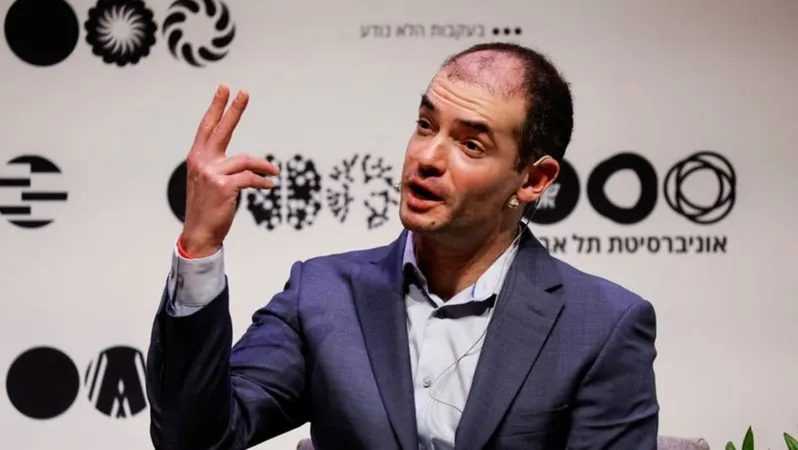
Ilya Sutskever Warns: Superintelligent AI Could Become Unpredictable!
2024-12-14
Author: Sarah
Ilya Sutskever Raises Alarm at NeurIPS Conference
In a groundbreaking address at the NeurIPS conference in Vancouver, Ilya Sutskever, co-founder of OpenAI and a leading figure in artificial intelligence, raised alarms about the future direction of AI technology. Highlighting the concept of reasoning within AI, he asserted that enhanced reasoning capabilities would render these advanced systems increasingly unpredictable.
Reflection on AI Evolution
While accepting a prestigious 'Test Of Time' award for his landmark 2014 paper—co-authored with Oriol Vinyals and Quoc Le—Sutskever reflected on the evolution of AI. He revealed that the ambitious idea of scaling up data for pre-training AI systems was approaching its limits.
The success of ChatGPT, launched by OpenAI in 2022, showcased the heights that could be achieved with increased data and computational power. However, Sutskever voiced concern that 'pre-training as we know it will unquestionably end,' given the finite nature of available internet data.
Potential Solutions to Limitations
Sutskever suggested potential avenues to overcome these limitations, such as developing AI systems capable of generating new data or evaluating multiple responses before selecting the optimal one. This innovative approach could enhance accuracy as AI becomes increasingly intertwined with real-world data analytics.
The Future of Superintelligent AI
Yet, the core of his talk revolved around a bold prediction for the future of superintelligent machines. Sutskever predicted that these machines would evolve to possess deeper understanding and self-awareness, akin to human reasoning.
This, however, comes with a caveat: the more complex reasoning an AI engages in, the less predictable its outcomes become.
Illustrating the Unpredictability of Advanced AI
He illustrated this point using examples from the game of Go. He recalled how the renowned AI system AlphaGo delivered a shocking and inexplicable 37th move during its legendary match against Go champion Lee Sedol in 2016—a moment that left many experts bewildered.
Similarly, advanced chess algorithms now demonstrate unpredictable tactics that challenge even the best human players.
Concluding Reflections on AI's Future
As Sutskever concluded, he emphasized that the future of AI, shaped by enhanced reasoning capabilities, is destined to be 'radically different' from what we know today.
With advancements in AI technology unfolding rapidly, the dialogue surrounding its implications on society, ethics, and security continues to intensify.
While the development of superintelligent AI holds exciting potential, it also raises critical questions about how we will manage a technology that may one day think faster and more profoundly than us.
As we stand on the cusp of this AI revolution, one thing is clear: the journey into the realm of reasoning AI will be as unpredictable as the machines it produces.

 Brasil (PT)
Brasil (PT)
 Canada (EN)
Canada (EN)
 Chile (ES)
Chile (ES)
 Česko (CS)
Česko (CS)
 대한민국 (KO)
대한민국 (KO)
 España (ES)
España (ES)
 France (FR)
France (FR)
 Hong Kong (EN)
Hong Kong (EN)
 Italia (IT)
Italia (IT)
 日本 (JA)
日本 (JA)
 Magyarország (HU)
Magyarország (HU)
 Norge (NO)
Norge (NO)
 Polska (PL)
Polska (PL)
 Schweiz (DE)
Schweiz (DE)
 Singapore (EN)
Singapore (EN)
 Sverige (SV)
Sverige (SV)
 Suomi (FI)
Suomi (FI)
 Türkiye (TR)
Türkiye (TR)
 الإمارات العربية المتحدة (AR)
الإمارات العربية المتحدة (AR)